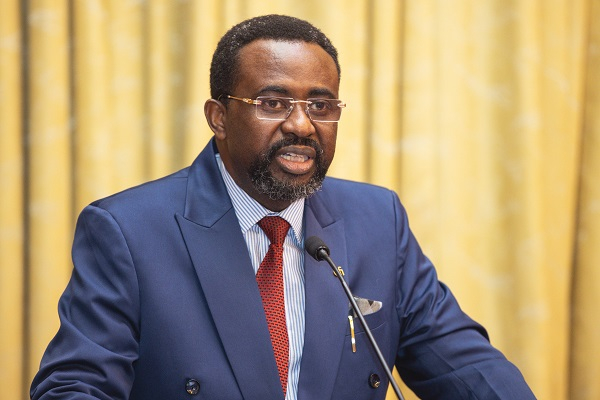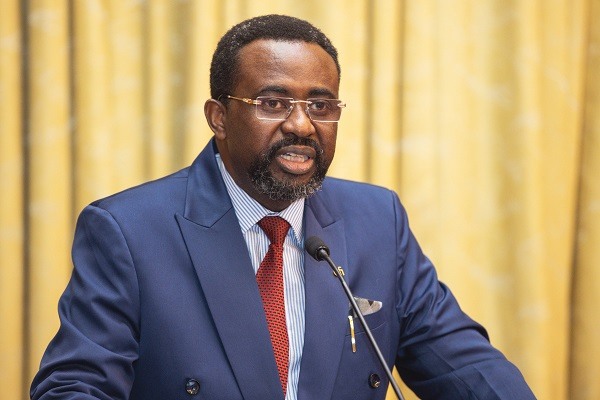The Governor of the Bank of Ghana (BoG), Dr. Johnson Asiama, declared that the country can no longer pretend cryptocurrencies aren’t part of its economic reality.
“We can’t stop it,” Dr. Asiama told attendees at a Graphic Business/Stanbic Bank Breakfast Meeting on Tuesday. “Crypto is a big thing in Ghana. We can pretend to look the other way, but the reality is that it's impacting.”
The governor’s remarks signal a dramatic shift in the central bank’s stance on digital assets—moving from denial and warnings to engagement and regulation.
From Warnings to Action
For years, the BoG distanced itself from cryptocurrencies. Public notices in 2018 and 2022 made it clear: digital assets weren’t legal tender in Ghana, and banks were barred from facilitating crypto transactions. Crypto activity continued anyway, growing in popularity among Ghanaians who saw it as an alternative way to invest, transfer money, and even fund businesses.
Now, the central bank is acknowledging what many users have known for years—crypto isn’t going away. And instead of fighting it, the BoG wants to build a regulatory framework that works.
“As a regulator… together with the SEC, the Ghana Revenue Authority, and others, we’re joining efforts to regulate that activity,” Dr. Asiama said. “We want to ensure the benefits accrue to us while minimizing the risks.”
“Crypto Is Like Air—You Can’t Stop It”
In an anecdote that drew laughs and nods from attendees, Asiama shared a friend’s take: “Crypto is like the air we breathe. You can’t stop it. It goes everywhere.”
That ethos is now guiding Ghana’s new approach. Rather than trying to eliminate cryptocurrency usage, the BoG wants to bring it into the light—where it can be monitored, guided, and kept in check.
Regulatory Momentum Is Building
This isn’t coming out of nowhere. In August 2024, the BoG released draft guidelines that laid the groundwork for regulating Virtual Asset Service Providers (VASPs). These included proposed rules around anti-money laundering (AML), licensing, and internal risk controls.
The next big step? The Bank plans to launch a full regulatory regime by September 2025—pending the passage of a new VASP Act. This legislation would give the central bank legal power to license, supervise, and partner with other regulators to oversee the crypto space. A special unit within the BoG is being set up to make this happen.
Ghana Joins a Continental Trend
Ghana’s pivot to crypto regulation mirrors what’s happening across Africa. Nigeria and South Africa have already rolled out crypto rules, with South Africa licensing over 240 crypto firms under its own framework.
The drive isn’t just local—there’s international pressure too. Organizations like the Financial Action Task Force (FATF) are pushing countries to regulate VASPs to fight money laundering and terrorism financing. Countries that don’t comply risk being labeled as high-risk jurisdictions—a black mark in global finance.
Striking a Balance: Innovation vs. Risk
The BoG is walking a tightrope. Cryptocurrencies offer real advantages—cheaper cross-border payments, faster remittances, new investment vehicles, and more access to financial services for the unbanked.
(Remittances alone brought over $4.5 billion into Ghana in 2023, according to the World Bank.)
But the risks are equally real. Scams, extreme volatility, money laundering, and cybercrime plague the crypto world. Without proper oversight, those risks could spill into the broader economy.
The eCedi and the Future
Meanwhile, Ghana is still piloting its own Central Bank Digital Currency—the eCedi—a state-backed alternative to private cryptocurrencies. But Dr. Asiama’s remarks make it clear: the future of finance in Ghana isn’t either/or. It’s both.
Ghana will continue to explore its CBDC, while also preparing to regulate Bitcoin, Ethereum, and the rest of the crypto ecosystem.
What Comes Next
If passed, the VASP law could make Ghana one of the leading countries in Africa when it comes to crypto oversight. The goal is to create a safe, transparent environment where digital assets can thrive—without threatening financial stability.














